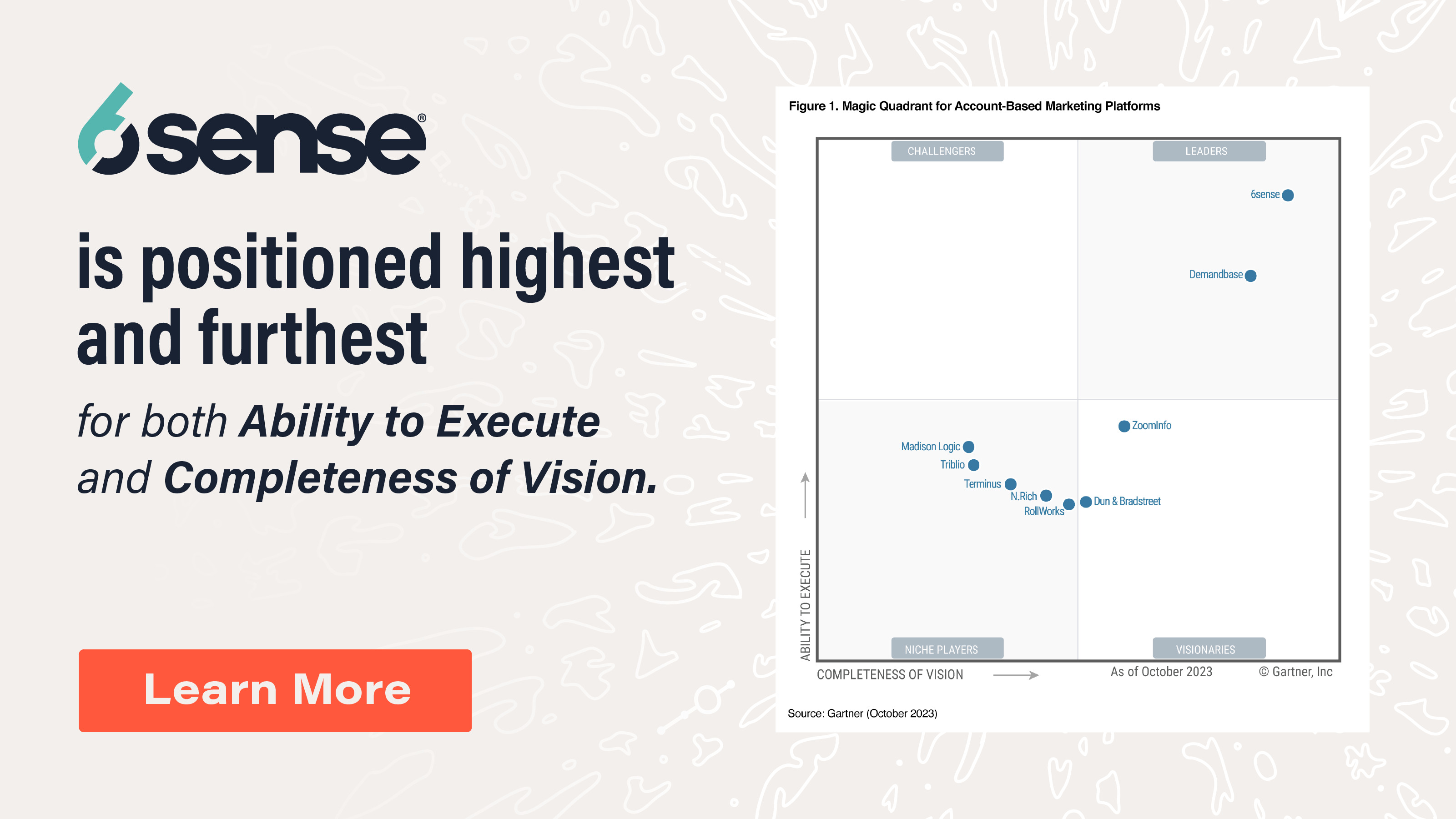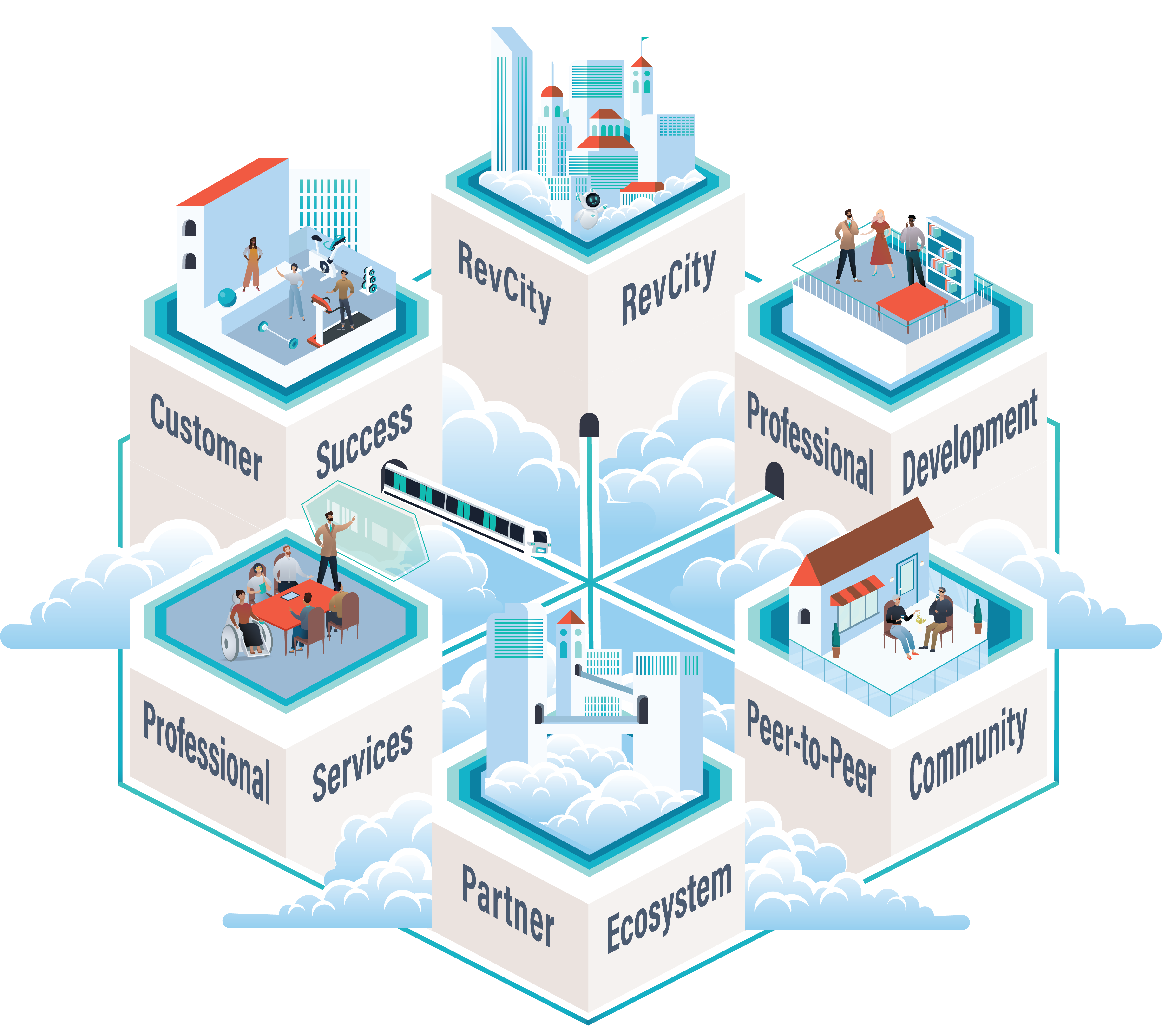
Gabby Bahnmuller and Nita Kim are two leaders of 6sense’s Employee Resource Group group devoted to raising awareness of the Asian American Pacific Islander community. Gabby’s role at 6sense is Sr. Manager, People Partner; Nita is a Customer Success Platform Program Manager.

AAPI Heritage Month runs through May, and Gabby says the celebration creates an opening to educate people about the ways the community has shaped American history. It also highlights prejudices that continue to impact their lives — whether it’s the wave of violence that followed COVID or, as Nita points out, seemingly benign stereotypes that in fact create uncomfortable or harmful environments.
Here’s what they had to share about their journeys, their approach to celebrating culture, and how allies can help.
6sense: How do you describe AAPI Heritage Month?
Nita: It’s worth dedicating a month so that people are aware of it, and us. This awareness isn’t ingrained as a part of American culture, although the growing AAPI community has been shaping and writing America’s history for a long time. It’s just something people don’t often acknowledge. Asian-American history is American history.
I’m an immigrant. If you look at United States history, many people chose to come here. It’s the same for Asian immigrants. We chose to come here. It’s a conscious decision we make. We want to be part of it.
America isn’t the land of a specific ethnicity. It’s the people who make up the country, and Asian-Americans and Pacific Islanders are part of that.
What is your favorite part of AAPI Heritage month? Does it change your day-to-day compared to other months?
Gabby: I grew up in a predominantly white, homogenous environment. I didn’t have a lot of people that related to me in terms of ethnicity or culture. So the month means a lot to me because I’m now able to connect and identify with others in the same boat as me.
And it allows me to think about myself and our common threads with others. I celebrate by participating in different events, spending more time in AAPI-owned businesses, that sort of thing.
Nita: This is the month to reflect and share our heritage. And people are more curious by design because we intentionally call it out. People have questions and show an interest in my background — me as a person, not just as another colleague.
And it’s great because not everybody, especially from the AAPI community, are super vocal about issues that are happening in the communities until, for example, when there’s Asian hate crime.
Are you comfortable bringing your authentic selves to 6sense?
Gabby: Yes, and that applies outside of AAPI month, too. It’s built into our culture. If we look at our FAMILY values [Fun, Accountability, Mindfulness, Integrity, Love, Yes and…], those are the building blocks that allow people to bring their authentic selves to work.
When I look at it through the lens of AAPI Month or 6sense’s AAPI ERG, we create spaces for people to connect with others who’ve had similar experiences. It’s a space to come and talk about what’s on our minds and find common threads from a cultural perspective.
For me, bringing your authentic self means you don’t need to hide behind a mask. You don’t need to assimilate in any way. And I feel like our company values and programs allow me to do that. You can say what’s on your mind, share cultural differences, and let your personality shine through.
I don’t feel like I need to be anybody else. I feel like I can be heard.
What’s something you want people to know about your culture?
Gabby: When we reflect on what “AAPI” is, it’s important to remember that AAPI is such a big umbrella. When I was growing up, there really wasn’t much awareness of the breadth of culture that AAPI represents. What people knew was either you were Chinese or Japanese, or maybe Indian. But what exists between those spaces?
I really enjoy the spectrum of different cultures, ethnicities, and heritages under the AAPI umbrella. It’s not one-dimensional. It’s many religions, many traditions.
I hope as we bring more awareness to the AAPI community, more people can discover that richness and depth.
Do you have any advice for those looking to be a valuable ally?
Gabby: My mind goes to education. We all have a responsibility — not just the AAPI community — to educate ourselves on other under-represented groups, much like we have a responsibility to educate ourselves on other things. It shouldn’t just be gated to one month. It should be something that we’re all working towards, all year long.
I’ve heard from people in the ally community that sometimes they’re nervous to ask questions or that they might say the wrong thing. I think that keeps them from participating or being a really good ally; they feel they need to say these things perfectly.
But that’s not the case. All you have to say is, “I’m not really sure how to say this” or “Maybe I’m not fully educated, but I want to help and be a better ally to you. What can I do?” In my mind, that’s all it takes to be a good ally. And we won’t know all the answers, and that’s okay, but we’re all trying to better ourselves.
Nita: This is really hard, but it’s important to acknowledge your biases. We all need to work on calling out the myths and stereotypes — things that are holding people back in the community.
A good example is the “model minority” concept. This is ingrained in both the non-Asian and Asian communities. Sometimes, we [members of the AAPI community] are held to that standard, and it puts us in uncomfortable positions.
Don’t say to yourself, “Nita is Asian, so she must be good at math.” I am good at math, but not because I’m Asian. Be open-minded and try not to automatically judge people based on the myths that can surround us all.



